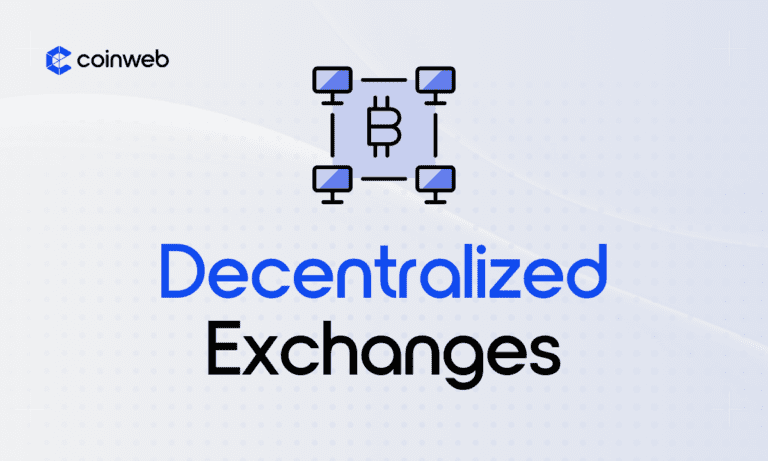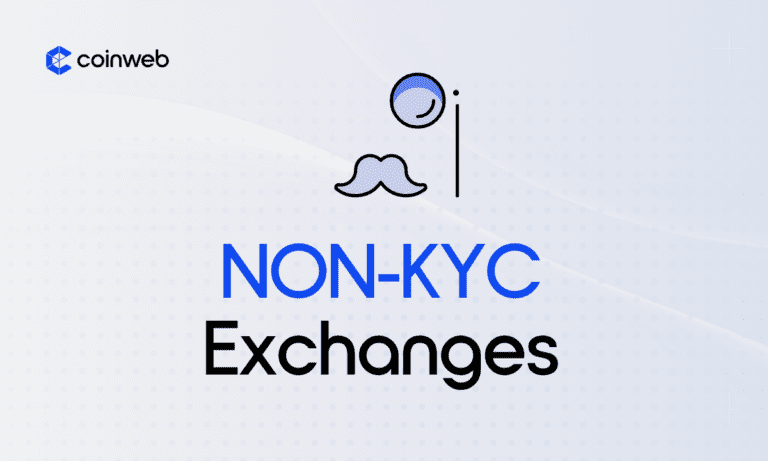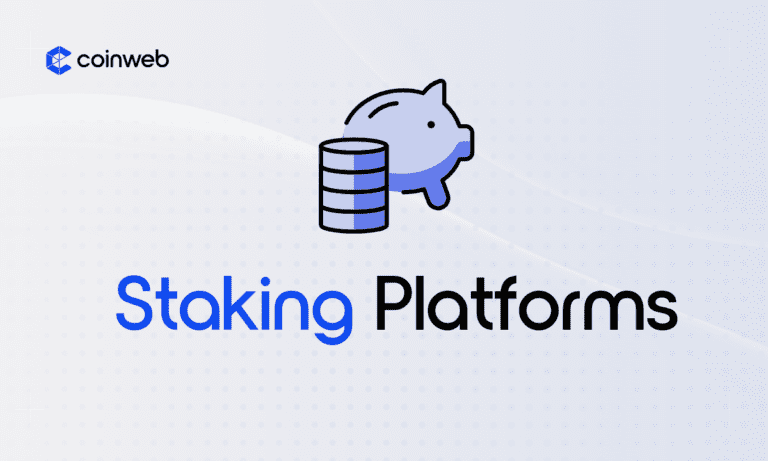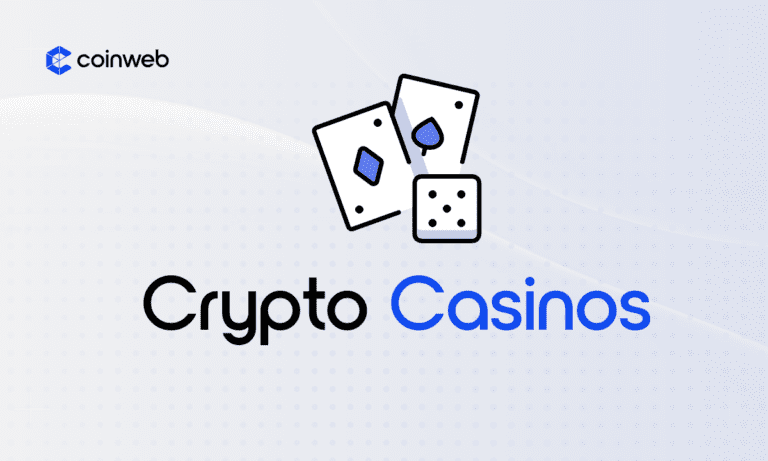TLDR
DEXs (decentralized exchanges) provide a secure and reliable crypto trading platform for traders by removing the need for third-party intermediaries. With peer-to-peer marketplaces like these, the benefit is that you transact with code, not with centralized authorities.
Self-automated smart contracts power the best decentralized exchanges and allow users to leverage their positions. This is done through borrowing funds, generating passive income from lending, and collecting fees for providing liquidity.
Consider these factors when selecting a decentralized crypto exchange: access to the dex, UI/UX, liquidity, asset choices, security, reputation, and trading fees. It’s also essential to look at reviews from other exchange users.
We have curated a selection of the best decentralized cryptocurrency exchanges suitable for all users, saving you time and energy.
Every aspect of a DEX
What is a DEX?
A DEX, or decentralized exchange, offers a new way to trade cryptocurrencies. Decentralized exchanges offer a secure and non-custodial way to exchange assets without involving third parties like banks or payment processors.
Decentralized exchanges offer users a secure, fast, and cost-effective way to transact directly between themselves. This peer-to-peer system is powered by blockchain technology, and smart contracts keep user funds safe. This innovative solution provides a reliable way to confirm that your digital wallet stays protected. It allows for secure transfers without relying on central authority verification.
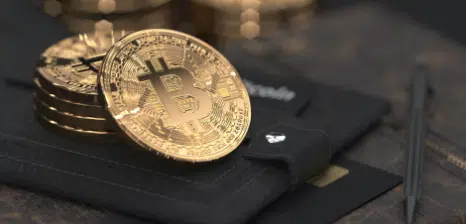
Decentralized exchanges provide complete transparency as all fund movements are recorded on-chain. Trading on these platforms eliminates the need for a trusted third party, reducing counterparty risk. Compared to centralized exchanges, this is a major advantage.
Unlike centralized exchanges, decentralized exchanges offer users more control over their cryptocurrency transactions, reducing counterparty risks associated with third-party intermediaries. Additionally, by decreasing centralization, these exchanges help to mitigate systemic and governmental risks present in centralized exchanges.
Importance of decentralized cryptocurrency exchanges in the crypto industry
As the best crypto exchange world develops, DEXes are quickly becoming necessary. Unlike traditional centralized exchanges, these decentralized finance platforms grant users more autonomy and a range of transaction options.
Decentralized exchanges utilize smart contracts, often based on Ethereum’s blockchain, to enable secure trading of cryptocurrencies by participants.
However, we are seeing more development on other chains like Binance smart chain, Solana and Cosmos.

Furthermore, eliminating intermediaries makes user accounts less susceptible to hacking, and funds can remain secure. Due to the absence of central authority, decentralized exchanges offer unique trading pairs not found elsewhere. In a decentralized ecosystem, anyone with a smart contract can list their token on a DEX, so users must be cautious.
How do decentralized cryptocurrency exchanges work
Decentralized exchanges are built on top of blockchain networks that support smart contracts. Users keep custody of their funds and incur transaction and trading fees. Trades are made directly through smart contracts.
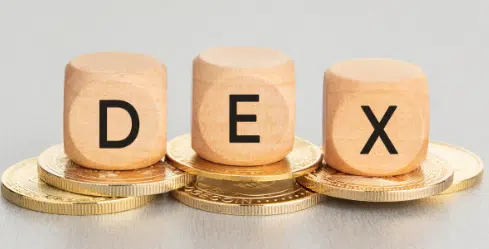
The first decentralized exchanges used the same type of order books as centralized exchanges. Automated market makers, order book exchanges, and decentralized exchange aggregators are the three main types of DEXes. Users can trade directly with each other on these platforms, and we will review each type in detail later in this article.
Security measures
To provide the best security protocols and safeguards, decentralized exchanges employ a combination of both traditional security measures and several relatively new technologies. For some DEXes, two-factor authentication (2FA), including SMS authentication, is added for one extra layer of security to user accounts.
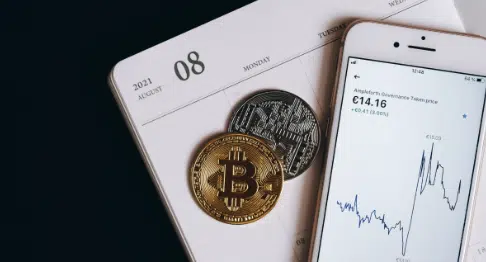
Furthermore, many decentralized exchanges protect users by encrypting their data and communications with the highest encryption ciphers available today. Additionally, the best decentralized exchanges offer Insured hot crypto wallets where private keys are stored separately from the exchange’s operational wallets. This helps protect users against possible hacks or losses due to human error.
Types of Decentralized Cryptocurrency Exchanges
Let us review the different types of DEXes in the cryptocurrency market.
Automated Market Makers
Automated market makers (AMMs) are a type of decentralized exchange. They use algorithmic “money robots” that enable users to buy and sell digital assets directly with each other.
An AMM reduces price friction due to automatic pricing and balancing techniques. The decentralized nature of AMMs also allows users to take ownership of their funds and remain in complete control of their assets.
Market makers are essential components of AMMs, as these liquidity providers help with assets that may otherwise be illiquid. Without market makers, more prominent investors wanting to make large trades would significantly impact an asset’s price and reduce the ability of other investors to enter or exit a position at a fair price.
Market makers place buy and sell orders to provide liquidity and ensure consistent pricing. They aim to profit steadily through margin trading, capturing the spread between the highest buy and lowest sell offers.

How AMMs work
AMMs use a software algorithm to determine the price of digital assets. This algorithm is powered by a smart contract with liquidity providers and auto-balance buyers and sellers, so you can make trades without finding a counterparty on the other side.
As demand changes and market dynamics fluctuate, an Automated Market Maker (AMM) can recognize these changes and adjust their prices accordingly as new orders come in. This single powerful innovation promises to increase opportunities for traders, making it easier to access dynamic markets with central control.
Pros
- Offer you the chance to rapidly trade cryptocurrencies without using an intermediary or paying hefty fees.
- Present arbitrage opportunities to traders who can buy and sell tokens directly from the liquidity pools with broader spreads.
- Minimize slippage by reducing the rate at which an individual experiences a wide price gap when selling or buying.
Cons
- AMM best-decentralized exchanges’ liquidity pools are relatively small for less traded assets, leading to substantial slippage (fees) if a large order is placed.
- When liquidity pools function using a ‘constant product’ curve, there may be cases where the ratio of your initial token supply changes after you add more tokens.
- There is a risk of impermanent loss until the proportion of tokens returns to what you initially invested.
Order Book
An order book provides a digital list of bids and asks for a particular asset, typically organized by price. Providing information on the highest buying price (offer) and lowest selling price (request) of any help. This makes it possible to view order book data, assess the size and liquidity of that market, and identify potential areas of strength or weakness.
You can look at this as an Excel sheet with the highest buy and sell orders matched against each other. The difference between the buy and sell orders is called the spread.
This data type has recently become more accessible thanks to the best-decentralized nature, which provides real-time access to live order books. This makes monitoring market movements easier for traders, investors, and analysts. Open trades comprise a variety of market orders, including limit, stop-loss, and trailing stop orders that are all registered in the order book.
Through technical analysis, investors leverage order books to assess potential investments. For instance, in derivatives trading alone, analyzing the costs and volume of orders at different prices can signal how the security may move in its trajectory.
How to order books work
An order book records all investors’ buy and sell orders and actions and allows them to earn interest in various securities. This information is accessible instantly so that market watchers can track the most recent activity. The core of an order book displays open orders at different prices, allowing buyers and sellers to establish their presence in the market or exit whenever desired.
Order books also provide other valuable data, such as the wallet identities behind recent transactions. However, investors may opt not to reveal their involvement through dark pools, which look to remain anonymous within public markets.

Pros
- Market players can make decisions as prices for buy and sell orders are updated in real-time. Otherwise, they can make a proactive market maker algorithm, which is more helpful.
- By utilizing an order book, market players can comprehend the fluctuations and trends of the market over an extended period.
Cons
- The presence of an order book can be detrimental to illiquid markets, resulting in adverse effects.
- Since DEXs only reveal a restricted number of order book records, relying on the signals for precise predictions is impossible.
Decentralized Exchange Aggregators
Overview
DEX aggregators are innovative financial protocols that provide the convenience of a single dashboard, allowing traders/investors to compare different platforms and decide which one has the best exchange rate for swap tokens.
You can look at them as a multisite with all the options, and the information is aggregated in real-time to help users pick the best one. This will enable them to compare various platforms and determine which offers the most competitive rate.

The aggregate algorithm considers several factors like liquidity, recent price changes for each token, and transaction costs associated with every platform to ensure the user gets the most optimal rate across all the markets.
With DEX aggregators, trading venues are no longer isolated entities; instead, they become components of a larger trading landscape connecting various liquidity pools and providing access to traders.
How DEX Aggregators work
DEX aggregators provide a helpful way for traders to trade on DEXs, an interface to view all available markets, order books, and prices across various blockchains in a single place.
Moreover, these platforms can use complex algorithms to compare the trading fees and token prices offered by different crypto exchanges to optimize their users’ slippage, swap fees, and token costs. Consequently, DEX aggregators help traders to manage their risk accordingly and take advantage of the most cost-effective deals.
Pros
- Provides a large liquidity pool for traders hoping to trade large quantities of digitally traded tokens.
- It saves a lot of time and effort by consolidating the research that a trader has to do in either real-time or otherwise.
Cons
- Navigating these crypto exchanges requires specialized knowledge, and the interfaces aren’t always accessible.
- With a vast array of tokens available, there are also many scams and schemes to be wary of.
Choosing a decentralized exchange
Here are some of the factors you should consider when choosing a decentralized crypto exchange:
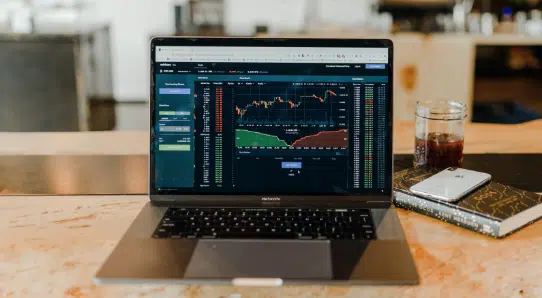
Security
Decentralized exchanges are not entirely immune to cyber threats. A few exchanges have had security issues over the past couple of years, which makes it evident that investors should keep security at the forefront of their selection process when deciding which exchange to use.
No one wants to entrust coins to exchange only to lose them due to theft or hackers. Even if the safety measures implemented by any cryptocurrency exchange are effective, there’s still no guarantee of safety – as indicated by different incidents in the past.
To strike a balance between risk and reward, research which crypto exchanges have been around for a long time, have many customers, and have had the least amount of problems.
Regulatory compliance
When selecting a decentralized exchange, one must ensure it complies with current regulations.
Moreover, total transparency regarding the ownership and operations of a platform should be present; generally, in politically stable nations, there is easy access to its leadership if needed.
Lastly, selecting an exchange from the same country where business is conducted may help ensure compliance and keep abreast of changing regulations.
Number of coins to trade
Most of the platforms support popular cryptocurrencies, such as Bitcoin and Ethereum. Still, if you want to create a more diverse portfolio, consider the number of cryptocurrencies a DEX offers. While over 20,000 cryptocurrency tokens are available, utilizing a reputed broker with high standards for listing assets is always wise.
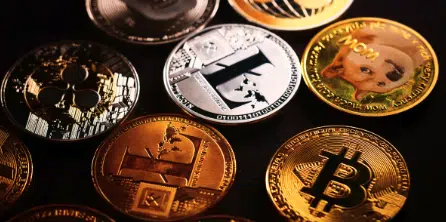
Beyond trading coins and tokens, users can find numerous platforms supporting additional investment options like ETFs, futures contracts, leveraged tokens, and more. With this variety of investment opportunities from trusted exchanges worldwide, cryptocurrency trading has never been easier or more secure!
Fees
Trading crypto can be highly tempting as it potentially rewards users. However, one must never forget the wise saying in this industry: “There is no free lunch.” Withdrawals, deposits, balance transfers, and other crypto trading activities will likely incur various fees. Therefore, it is essential to consider these costs when engaging in crypto trades.
These fees typically vary by total trading volume over 30 days; high-volume traders usually have lower fees than traders with smaller volumes. Reputable exchanges typically look for their transaction fees to remain at 0.2 % or lower – always keep this in mind, and don’t let yourself get surprised by hidden fee structures.
Liquidity
Cryptocurrency liquidity is critical when exchanging crypto for crypto or fiat currency. When transactions are quick and easy to complete, users can depend on an exchange for fair pricing that aligns with the cryptocurrency market. Liquidity refers to how close users can reach their asking price when selling their crypto asset.
There are ways of assessing an exchange’s liquidity, such as checking its past 24-hour trading volume — this will give you an idea of just how liquid a decentralized exchange is and whether it’s worth trusting your crypto investments with them.
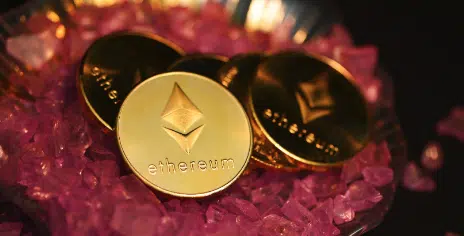
Conclusion
The rise of DEXs has transformed the face of cryptocurrency trading. Their decentralized and secure nature offers great benefits over traditional centralized exchanges. Weighing factors such as ease of use, asset choices, security, reputation, and low trading fees can help determine which exchange is good for you.
This is why we have selected the top decentralized exchanges suitable for different users on our platform, so you don’t need to spend time researching them extensively.
By simplifying and easing access to top decentralized exchanges, we hope more people can take advantage of efficient trading cryptocurrencies without worrying about potential issues like hacking or government intervention. Whether making fast trades or generating income through lending programs, choose wisely and capitalize on what DEXs offer!
KuCoin is a hybrid exchange that combines features of both centralized and decentralized exchanges. The team aims to fully transition to a decentralized exchange model in the long run.
1inch is a unique decentralized exchange aggregator, unlike the other exchanges listed. It searches various decentralized exchanges on the Ethereum blockchain to find the best prices and lowest fees for trades. 1inch permits users to buy, sell, and trade ERC-20 tokens.
dYdX, a top DeFi trading platform, is progressing towards full decentralization amid heightened scrutiny from global regulators on the digital asset industry.
A DEX, or decentralized exchange, offers a new way to trade cryptocurrencies. Instead of relying on third parties such as banks, brokers, or payment processors to trade tokens with fiat currencies, a decentralized exchange provides users with a secure and non-custodial method for transferring and exchanging assets.
Decentralized exchanges are built on top of blockchain networks that support smart contracts. Users keep custody of their funds and incur transaction and trading fees. Trades are made directly through smart contracts.


